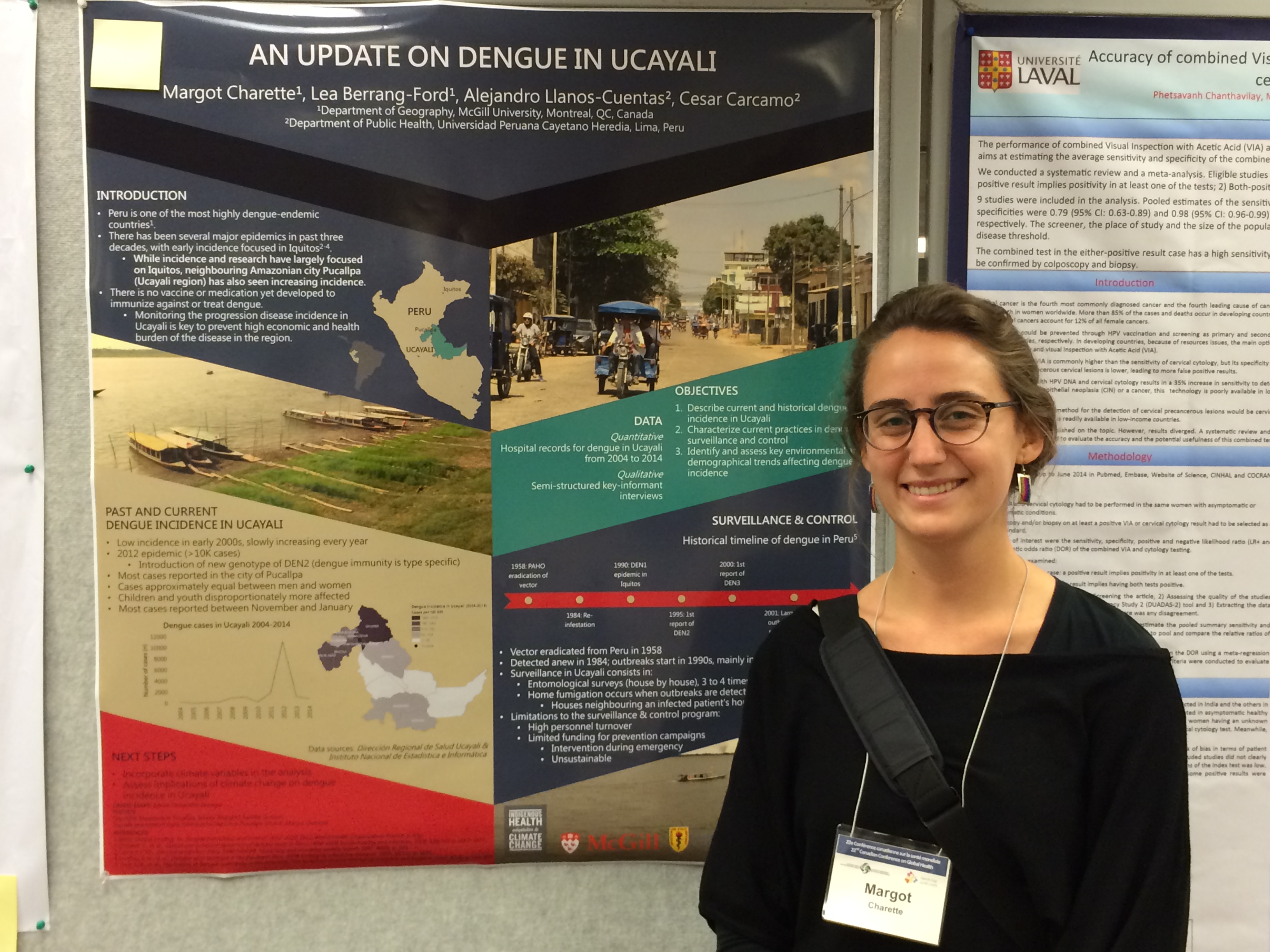From November 5-7th, lab members Margot Charette and Sarah MacVicar attended the Canadian Conference on Global Health here in Montreal. They each presented posters on their master’s research with IHACC, Margot on her study of environmental drivers of dengue in Ucayali, Peru, and Sarah on her modelling of the effects of weather on birth size in Kanungu District, Uganda. University of Guelph IHACC affiliates Kaitlin Patterson and Rebecca Wolff also had posters on display at the conference, with Rebecca’s winning the conference prize for “Best Contribution to Global Health”.
Margot’s innovative poster, pictured above, was rewarded with the Hillman Prize for Best Student Poster. Congratulations Margot!
The conference theme this year was on capacity building, which is high relevant to IHACC’s work around the world. Here are some of Sarah’s reflections on the event:
Our three days at this year’s Canadian Conference on Global Health have left us overflowing with new ideas and inspired by the energy, enthusiasm and commitment of all delegates. Though we may differ in roles and approaches, it was clear that everyone at the conference was working towards a common goal: building a future with better health for all.
Some of the most powerful sessions of the conference were those examining ethical practices and power dynamics in global health. These sessions posed some of the most challenging questions we face as researchers: how do we build authentic partnerships? How can we challenge the false dichotomy dividing North from South? What can we do in our everyday practice to decolonize the academy?
There is a large appetite for these conversations: the workshop on power, privilege, and inclusion in global health saw some of the highest attendance and engagement of the entire conference. I am hopeful that these discussions will become a central theme in future conferences as we learn to better evaluate our motives and methods. Keeping this in mind is essential to ensure that not only are we “doing no harm”, but that we are promoting resilience, autonomy, and local capacity in all that we do.
***
Read more by Dr. Lea Berrang-Ford at http://leaberrangford.ca/archives/category/publications

